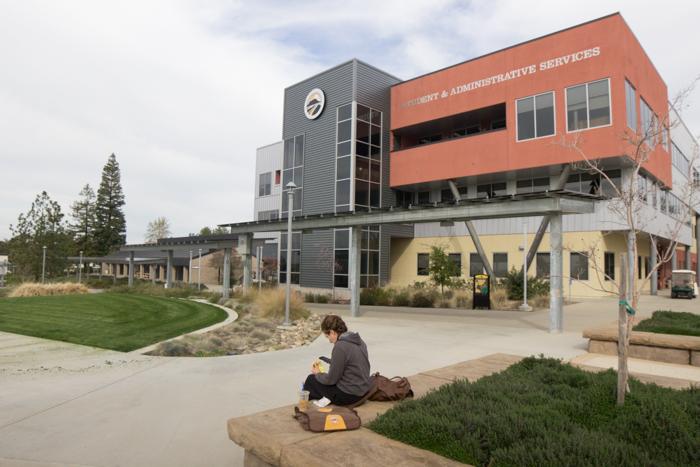OROVILLE, Calif. — Almost three and a half years ago, a Butte College student was allegedly raped by a football player off-campus, creating a snowball effect.
In October 2012, the female student filed a report with the Chico Police Department, and then reported the incident to Butte College’s Title IX coordinator, Allen Renville. A police investigation ensued, but didn’t yield any charges. Renville, who “was never trained as a police investigator,” led the college’s investigation, according to the Los Angeles Times.
A couple months later an on-campus hearing was held, and the coordinator concluded there was “’insufficient evidence for disciplinary action,’” according to the student’s lawyer, Jim McCabe, whose services were secured after the judgment.
The student eventually appealed the decision, but the ruling was upheld.
McCabe alleges the college changed the appeal procedure during the proceedings.
“When the victim was told the results of the investigation she was given a document, and Mr. Renville told her that was the appeal procedure,” McCabe said. “So we took the document and we tried to follow it. When we tried to follow it Butte College changed the procedure.
“Under the existing procedure the victim had the right to cross-examine witnesses, basically to hear the testimony from the accused and to be represented by somebody other than the victim herself,” he said.
But the student didn’t have those rights, the lawyer said.
Renville denies the college did anything wrong.
Instead of dropping the grievance, the student and McCabe forged ahead. The lawyer submitted a complaint against the college to the U.S. Department of Education’s Office of Civil Rights, alleging his client was raped by the athlete and the school mishandled the investigation, the Chronicle of Higher Education reported.
Consequently, the OCR launched a federal investigation into Butte College for potential Title IX violations involving its handling of reports alleging sexual violence among students. That was Feb. 27, 2013.
A public college or university could lose federal funding if it’s not compliant with Title IX, the gender-equity law passed in 1972 that now includes stringent guidelines for handling cases of alleged sexual assault, harassment and rape.
Since April 2011, colleges and universities have been asked to investigate reports of alleged sexual violence, as part of the Title IX compliance.
In May 2014, Butte College was publicly listed as one of 55 higher-education institutions under investigation by the OCR, gaining it national notoriety. Renville said he began fielding calls from people around the country, including Los Angeles, Chicago and New York.
Five months later, the college faced even more scrutiny. A different football player, Brandon Banks, was dismissed from the team’s roster after it was revealed he faced multiple felonies for his alleged participation in the rape of an unconscious student while attending Vanderbilt University in Nashville according to a report by KRCR News in September 2014.
Banks and three of his former teammates, who were also accused, maintain their innocence pending trials, The Tennessean of Nashville recently reported.
Banks no longer attends Butte College.
Renville, who’s also the college’s vice president of student services, said he doesn’t know where the OCR investigation stands or when it will be resolved because the agency hasn’t given him any updates. He said when two federal investigators visited the campus in March 2014, they told him the college did “everything procedurally correct,” but noted there was room for improvement.
“They said ‘we’ll get back to you.’ They never have,” he said.

Renville said the college sends updates to the OCR every three to four months, explaining what steps it has taken to improve the safety of students.
Nationally, the Butte College case is one of 251 ongoing investigations at 165 higher-education institutions, according to a database compiled by the Chronicle of Higher Education, showing the increasing number of cases opened since April 2011, among other figures related to the OCR investigations.
The Chronicle reports 46 cases have been resolved to date, and 15 months is the average time it takes to reach a resolution.
Butte College’s case is going on 37 months.
In late 2014, three U.S. senators — Barbara Boxer, D-C.A.; Kirsten Gillibrand, D-N.Y.; and Tim Kaine, D-V.A. — wrote to the OCR, praising its efforts and asking why its inquiries took so long.
A representative of the OCR responded that the agency usually takes more time than other jurisdictions because “it comprehensively examines the campus culture with respect to sexual violence, reviews the institution’s response to complaints of sexual violence over a period of years, interviews students who filed sexual violence complaints, interviews school officials involved in responding to sexual violence reports and complaints.”
McCabe said he thinks the OCR has systemic issues.
“They are navel-gazing,” he said. “They’re not finishing things, they’re trying to get it perfect and that doesn’t serve anybody. They need to get a good result, a fair result and a fast result because otherwise there’s no closure for the victims, there’s no timely guidance to those decisions that had failed to discharge obligations under Title IX, and things simply aren’t fixed.”
Renville said the OCR might have bigger fish to fry.
“I believe that they looked at our situation and found that there’s a whole lot of others that are more important to get to and we got lost in the shuffle,” he said.
A U.S. Department of Education representative was reached but didn’t agree to a phone interview. Subsequent email questions sent to the agency were not returned.
Gabriel Sandoval and Molly Sullivan can be reached at [email protected] or @GLuisSandoval and @SullivanMollyM on Twitter.







